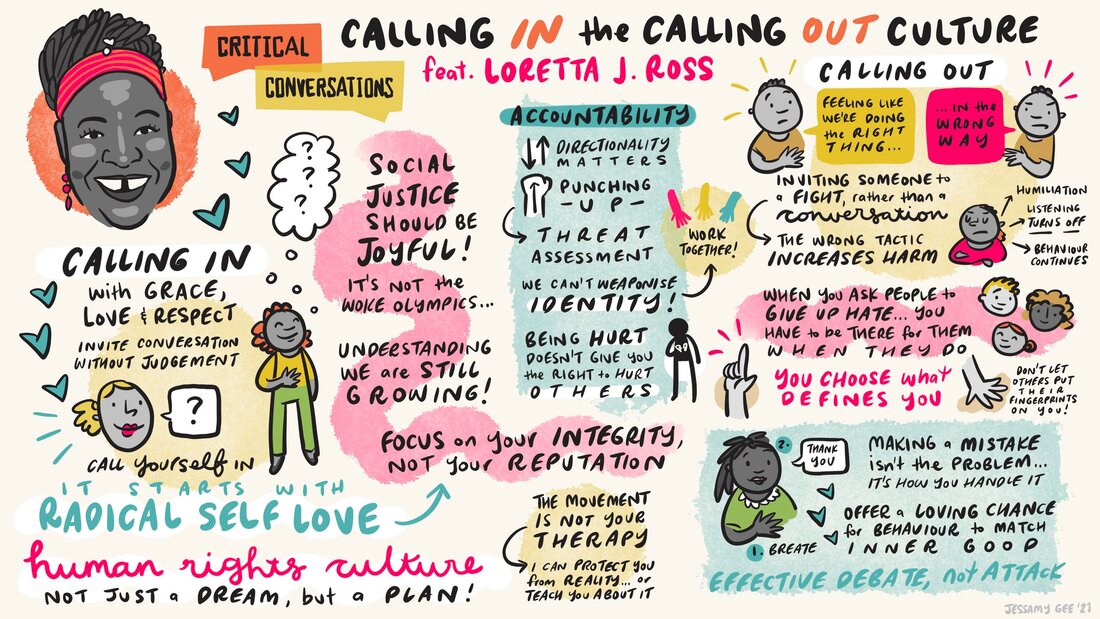|
Organizing and movement building are collective efforts. Only together, through institutions, cross-organizational collaboration, and ecosystem connection, can we reshape the world. But within these cooperative efforts are individuals. And as individuals within this work, we often find ourselves in deep conflict, hurt by the way we treat one another. Across the country, our collective efforts are frozen or destroyed by our responses to this conflict. At Movement Matters, we are constantly trying to learn new skills and approaches to create processes that care for the individual, our organizations, and our collective work. The Calling In: Creating Change Without Cancel Culture course by Loretta J. Ross and Loan Tran is one source of this learning. We have been engaging with their material for over a year and the entire MM team enrolled in the course this October.
Loan Tran, who is credited with coining the phrase “calling in”, frames cancel culture as a product of our carceral system of punishment. They add that if we are committed to a human rights framework, we must create systems for relationship building and accountability that free us from these dominant paradigms. Calling In culture is one such mechanism. Ms. Ross and Loan Tran take participants through the 5-C Continuum (Calling Out, Canceling, Calling In, Calling On, Calling It Off) and discuss how/when each is appropriate in our movement spaces, including distinguishing between how we engage with people “on our side” versus targets of our organizing campaigns. Though the majority of the courses focus on Calling In as a strategy of radical love to uphold our movement spaces, Ms. Ross and Loan Tran explore the ways in which we “punch sideways” at one another due to our trauma responses and deep socialization in the oppressive systems under which we live. However, they urge that if we are to build a real human rights movement that stretches far, wide and deep, we cannot cancel each other and we must find other ways to handle conflict that go beyond the examples provided by society. The course also helps us examine how to adhere to Calling In practices when faced with uneven power dynamics within our movement institutions. It does not shy away from the need for accountability and change within our work, but rather reexamines our often instinctual reactions to try to achieve them. In addition to the theoretical grounding to Calling In culture, the course also offers learning labs, led by somatic practitioner Desiree Hammond, where participants are able to practice and embody this process. As we continue to learn and explore this methodology, we look forward to incorporating it into Movement Matters’ approach to accompaniment and capacity building. Visit Loretta Ross' Website Learn More About the "Calling In" Online Sessions Comments are closed.
|
AuthorsMOVEMENT MATTERS Archives
October 2023
Categories
All
|

